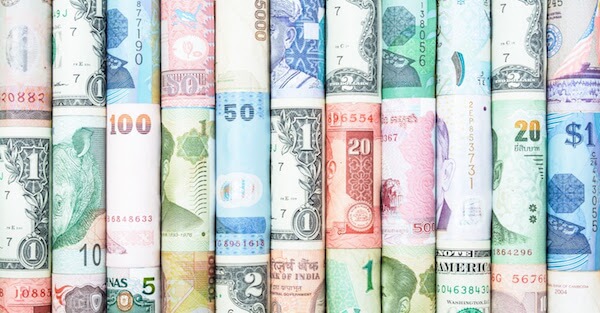One of the key factors in achieving financial independence is the ability to hedge against loss.
That’s why we’ve been writing so much lately about hedging against the next bear market. Instead of investing in overvalued, bloated stocks and bonds, we’ve been talking about holding cash, buying gold, and exploring undervalued junior mining stocks.
Similarly, it’s important to hedge against currency fluctuations. If you’re sitting on a pile of dollars – or whatever currency it may be – and the dollar nose dives, you’ve lost a tremendous amount of purchasing power.
It’s important not to hold all your eggs – especially your nest eggs – in one basket. That’s why we recommend diversifying out of your home currency.
In today’s piece, we specifically discuss an excellent way to diversify out of the US dollar – buying Hong Kong dollars (HKD).
Even if the US dollar isn’t your home currency, this still applies to you. Because the dollar is the world’s reserve currency, if you’re doing most any business (especially business across borders), you’re exposed to the USD.
We’ve written about the merits of holding some savings in Hong Kong dollars numerous times here in Sovereign Man: Confidential. It’s long been a smart idea, whether you’re from the US, Uganda, or Uruguay.
But lately, the Hong Kong dollar has received a lot of attention because it hit the weaker limit of a trading band versus the US dollar – HKD trades in a narrow band versus USD – for the first time since the band’s introduction.
So, is holding HK dollars still a good idea today?
That’s what we discuss in this month’s letter. Today, I’m going to give you my current take on the HKD.
What are the merits of the HKD? Is it a smart idea to invest in it, given that it is pegged to the US dollar?
And, most importantly, is the HKD in trouble?
In today’s monthly, we dive deep into the topic, and look for ways to hedge against currency volatility.
That’s why we’ve been writing so much lately about hedging against the next bear market. Instead of investing in overvalued, bloated stocks and bonds, we’ve been talking about holding cash, buying gold, and exploring undervalued junior mining stocks.
Similarly, it’s important to hedge against currency fluctuations. If you’re sitting on a pile of dollars – or whatever currency it may be – and the dollar nose dives, you’ve lost a tremendous amount of purchasing power.
It’s important not to hold all your eggs – especially your nest eggs – in one basket. That’s why we recommend diversifying out of your home currency.
In today’s piece, we specifically discuss an excellent way to diversify out of the US dollar – buying Hong Kong dollars (HKD).
Even if the US dollar isn’t your home currency, this still applies to you. Because the dollar is the world’s reserve currency, if you’re doing most any business (especially business across borders), you’re exposed to the USD.
We’ve written about the merits of holding some savings in Hong Kong dollars numerous times here in Sovereign Man: Confidential. It’s long been a smart idea, whether you’re from the US, Uganda, or Uruguay.
But lately, the Hong Kong dollar has received a lot of attention because it hit the weaker limit of a trading band versus the US dollar – HKD trades in a narrow band versus USD – for the first time since the band’s introduction.
So, is holding HK dollars still a good idea today?
That’s what we discuss in this month’s letter. Today, I’m going to give you my current take on the HKD.
What are the merits of the HKD? Is it a smart idea to invest in it, given that it is pegged to the US dollar?
And, most importantly, is the HKD in trouble?
In today’s monthly, we dive deep into the topic, and look for ways to hedge against currency volatility.
One of the key factors in achieving financial independence is the ability to hedge against loss. That’s why we’ve been writing so much lately about hedging against the next bear market. Instead of investing in overvalued, bloated stocks and bonds, we’ve been talking about holding cash, buying gold, and exploring undervalued junior mining stocks. Similarly,…
- Members Only Content -
You need to be a member of Sovereign Confidential to access this content.
If you are a member already, please login below.

